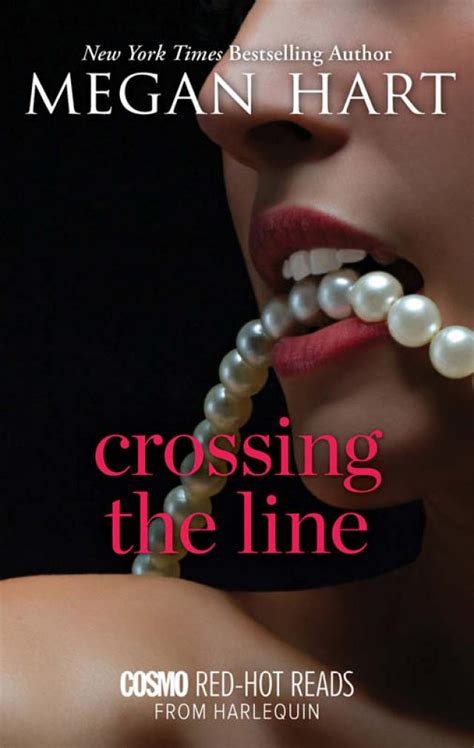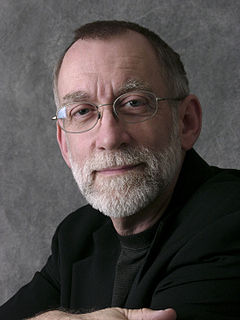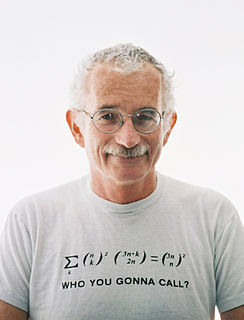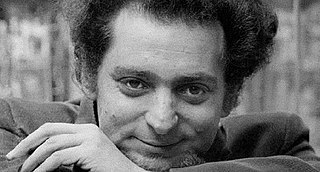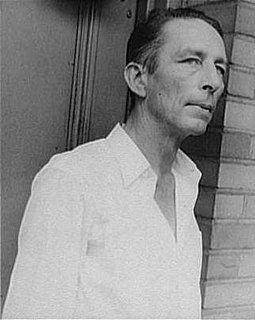Top 938 Concrete Quotes & Sayings - Page 16
Explore popular Concrete quotes.
Last updated on November 8, 2024.
Stop watering things that were never meant to grow in your life. Water what works, what's good, what's right. Stop playing around with those dead bones and stuff you can't fix, its over...leave it alone! You're coming into a season of greatness. If you water what's alive and divine, you will see harvest like you've never seen before. Stop wasting water on dead issues, dead relationships, dead people, a dead past. No matter how much you water concrete, you can't grow a garden.
An old essay by John Updike begins, 'We live in an era of gratuitous inventions and negative improvements.' That language is general and abstract, near the top of the ladder. It provokes our thinking, but what concrete evidence leads Updike to his conclusion ? The answer is in his second sentence : 'Consider the beer can.' To be even more specific, Updike was complaining that the invention of the pop-top ruined the aesthetic experience of drinking beer. 'Pop-top' and 'beer' are at the bottom of the ladder, 'aesthetic experience' at the top.
Why do you love the woman you're in love with? Because she is. And that, after all, is God's own definition of Himself; I am that I am. The girl is who she is. Some of her isness spills over and impregnates the entire universe. Objects and events cease to be mere representations of classes and become their own uniqueness; cease to be illustrations of verbal abstractions and become fully concrete. Then you stop being in love, and the universe collapses, with an almost audible squeak of derision, into its normal insignificance.
Say you're working for a big overseas aid organization. You can't leave home in a Mercedes Benz, travel 80 kilometers to work in a great concrete structure where there are diesel engines thundering in the basement just to keep it cool enough for you to work in, and plan mud huts for Africa! You can't get the mud huts right if you haven't got things right where you are. You've got to get things right, working for you, and then go and say what that is.
The subjects in my work appear as unidentified ghosts that can't be said to be of this world. I've decided to call them incarnations. In various religions, myths, and legends, the word "incarnation" refers to the birth or emergence of transcendent beings in the form of humans or other bodies. If "incarnation" denotes the appearance of an abstract being in some concrete form, in a gut ceremony, a shaman could be considered an incarnation of our desires, hopes, and sorrows. The incarnations that appear in my work are always new and I meet them for the first time by drawing them.
Sometimes when things break, you can hold them together for a while with string or glue or tape. Sometimes, nothing will hold what’s broken, and the pieces fly all over, and though you think you might be able to find them all again, one or two will always be missing. I flew apart. I broke. I shattered like a crystal vase dropped on a concrete floor, and pieces of me scattered all over. Some of them I was glad to see go. Some I never wanted to see again.
Because of its concrete content, sense-certainty immediately appears as the richest kind of knowledge, indeed a knowledge of infinite wealth for which no bounds can be found, either when we reach out into space and time in which it is dispersed, or when we take a bit of this wealth, and by division enter into it. Moreover, sense-certainty appears to be the truest knowledge ... but, in the event, this very certainty proves itself to be the most abstract and poorest truth. All that it says about what it knows is just that it is; and its truth contains nothing but the sheer being of the thing.
General Systems Theory is a name which has come into use to describe a level of theoretical model-building which lies somewhere between the highly generalized constructions of pure mathematics and the specific theories of the specialized disciplines. Mathematics attempts to organize highly general relationships into a coherent system, a system however which does not have any necessary connections with the "real" world around us. It studies all thinkable relationships abstracted from any concrete situation or body of empirical knowledge.
If there is a problem somewhere, this is what happens. Three people will try to do something concrete to settle the issue. Ten people will give a lecture analyzing what the three are doing. One hundred people will commend or condemn the ten for their lecture. One thousand people will argue about the problem. And one person-only one- will involve himself so deeply in the true solution that he is too busy to listen to any of it. Now...which person are you?
Life holds many, many, many mysteries, abstract things we all think about. In a film when things get abstract, some people don't appreciate that and they want to leave the theater. Others love to dream, get lost, try to figure things out. I'm one of those people. I like a film, a story that holds concrete things but also abstractions. So when ideas come along that have those things, I'm falling in love and going to work.
Concrete, Steel & Paint portrays the core values of restorative justice-respect, responsibility and relationships-expressed through art. it is art that involves victims, offenders and communities in a dialogue that is sometimes difficult and painful, sometimes reconciling, but always engaging. As one prisoner says in the film, 'We have come together collectively through art.' It will be a great discussion tool for college classes, community groups and others interested in issues of justice, community-building, conflict resolution and socially-engaged art.
To become fully human means learning to turn my gratitude for being alive into some concrete common good. It means growing gentler toward human weakness. It means practicing forgiveness of my and everyone else's hourly failures to live up to divine standards. It means learning to forget myself on a regular basis in order to attend to the other selves in my vicinity. It means living so that "I'm only human" does not become an excuse for anything. It means receiving the human condition as blessing and not curse, in all its achingly frail and redemptive reality.
You can keep counting forever. The answer is infinity. But, quite frankly, I don't think I ever liked it. I always found something repulsive about it. I prefer finite mathematics much more than infinite mathematics. I think that it is much more natural, much more appealing and the theory is much more beautiful. It is very concrete. It is something that you can touch and something you can feel and something to relate to. Infinity mathematics, to me, is something that is meaningless, because it is abstract nonsense.
I'm 64, but I act like I'm still 12. I go to schools. At colleges, they come out in droves, they almost scare me. I think it's just to see if I'm still alive. After I work them out - and it's not easy - I sit them down and we have a serious talk. Are they eating? Working on their body? I can say things parents won't say. No matter where I go, I talk to each one individually after I teach. They tell me things like, 'I'm starving, guys like girls thinner.' I give them concrete advice about self-image and self-worth.
I can't really speak to what it was like to call yourself a feminist in the past on a personal level but I think calling oneself a feminist in the past may have been inimical because feminists in the '70s were the first to really challenge deeply embedded gender roles and demand concrete political and economic rights. They were asking for rights that seemed like a direct threat to those in power - they were asking for equality in a society that didn't have it in an obvious way. They were put down and villainized because they were seen as threatening.
Thanks to the euro, our pockets will soon hold solid evidence of a European identity. We need to build on this, and make the euro more than a currency and Europe more than a territory... In the next six months, we will talk a lot about political union, and rightly so. Political union is inseparable from economic union. Stronger growth and Euorpean integration are related issues. In both areas we will take concrete steps forward.
Men swagger around calling themselves "cattlemen" but abuse their grass like a rapist. And abuse their cattle with concrete fecal feedlots without any regards to rumen function. Vegetable growers plow thousands of acres, planting monocrops of annuals in a never-ending tillage routine that totally annihilates carbon wealth. Why? Why are we so enamored of things that destroy carbon and disrespect the animals under our care? Grass. Lowly grass. It just gets no respect. And yet it is the lifeblood of the planet.
I generally go into a movie with a very strong vision, with how I want to make the film, how I want to shoot the film, how I want to edit the movie, what I want the sound to sound like. So I have a very concrete idea even if I don't storyboard it, I know exactly what I want to do once I get into the sequence. Now having said that, I try not to let that slave me to the process. So if I do storyboard a sequence I don't necessarily stick to it if I discover more exciting things on set.
I really like the interplay between thinking of text as ephemeral and thinking of it as a concrete, physical thing. With almost anything that I write, I'll stay completely immersed in the electronic text of it for a period of time and in another period, I'll stay immersed in it as a physical thing that can cut your skin. So with the apocalypses, I had them taped all over the wall and they had codes on them. Sometimes I would color code them in terms of thematic elements, sometimes in terms of voice, sometimes visual forms or images.
By instructing students how to learn, unlearn and relearn, a powerful new dimension can be added to education. Psychologist Herbert Gerjuoy of the Human Resources Research Organization phrases it simply: 'The new education must teach the individual how to classify and reclassify information, how to evaluate its veracity, how to change categories when necessary, how to move from the concrete to the abstract and back, how to look at problems from a new direction — how to teach himself. Tomorrow's illiterate will not be the man who can't read; he will be the man who has not learned how to learn.'
Do you know how much money you would save if you changed your light bulb to compact florescent light bubs? How much would you save if you decreased your temperature of your house in the winter by one degree, or increase it by one degree? We just don't know these numbers, but I think displays could make it a memorable change in terms of attention, and also help us translate it in terms of concrete ways on what you can get.
Since the Greeks the predominant attitude of thinkers towards intellectual activity was to glorify it insofar as (like aesthetic activity) it finds its satisfaction in itself, apart from any attention to the advantages it may procure. Most thinkers would have agreed with Renan's verdict that the man who loves science for its fruits commits the worst of blasphemies against that divinity. The modern clercs have violently torn up this charter. They proclaim the intellectual functions are only respectable to the extent that they are bound up with the pursuit of concrete advantage.
It was the kind of pure, undiffused light that can only come from a really hot blue sky, the kind that makes even a concrete highway painful to behold and turns every distant reflective surface into a little glint of flame. Do you know how sometimes on very fine days the sun will shine with a particular intensity that makes the most mundane objects in the landscape glow with an unusual radiance, so that buildings and structures you normally pass without a glance suddenly become arresting, even beautiful? Well, they seem to have that light in Australia nearly all the time.
If you want to be a fiction writer, you need to start reading like a fiction writer. To do so, you need to learn about craft so that the next time you pick up a contemporary short story, you're reading it not as an abstraction floating in formaldehyde, existing simply for the theorist's dull scalpel to saw on, but as a concrete thing constructed out of words and shaped by syntax, brought to life by a writer who made several thousand choices, some large, some small, before letting that imperfect beauty, the story, walk on its own two feet.
Combinatorics is an honest subject. No adèles, no sigma-algebras. You count balls in a box, and you either have the right number or you haven't. You get the feeling that the result you have discovered is forever, because it's concrete. Other branches of mathematics are not so clear-cut. Functional analysis of infinite-dimensional spaces is never fully convincing; you don't get a feeling of having done an honest day's work. Don't get the wrong idea - combinatorics is not just putting balls into boxes. Counting finite sets can be a highbrow undertaking, with sophisticated techniques.
Money is a great way to get happiness. Right? Lots of wonderful things you can do with money. The question is, are we really optimizing on that? So, if you think about getting lattes and getting cable. Which one of those is actually giving you a greater happiness, and if you have to cut on one of those, which one would you cut? So, I think thinking in terms of concrete terms would help us a great deal.
There were many words that you could not stand to hear and finally only the names of places had dignity. Certain numbers were the same way and certain dates and these with the names of the places were all you could say and have them mean anything. Abstract words such as glory, honor, courage, or hallow were obscene beside the concrete names of villages, the numbers of roads, the names of rivers, the numbers of regiments and the dates.
There are many agreements across the so-called "world religions," at a certain level of abstraction. But when it comes to applying them in concrete situations they may lead to incompatible decisions. As an example, some people think that Christian ideas of sexual modesty suggest that homosexuals should be locked up, some people think that they mean that the churches should recongize gay marriages. But everyone believes in sexual modesty. I think there are universal moral truths, whether or not everyone accepts them. Here's one very low level but important one: it's very bad to torture people.
Just as God's love entered the world, thereby submitting to the misunderstanding and ambiguity that characterize everything worldly, so also Christian love does not exist anywhere but in the worldly, in an infinite variety of concrete worldly action, and subject to misunderstanding and condemnation. Every attempt to portray a Christianity of 'pure' love purged of worldly 'impurities' is a false purism and perfectionism that scorns God's becoming human and falls prey to the fate of all ideologies. God was not too pure to enter the world.
Now, now," my father said. "Let's just get the bags." This was typical. My father, the lone male in our estrogen-heavy household, had always dealt with any kind of emotional situation or conflict by doing something concrete and specific. Discussion of cramps and heavy flow at the breakfast table? He was up and out the door to change oil on one of our cars. Coming home in tears for reasons you just didn't want to discuss? He'd go make you a grilled cheese, which he'd probably end up eating. Family crisis brewing in a public place? Bags. Get the bags.
I'm realizing that the people who criticize what I'm doing, their intentions and comments are not actually real.There's nothing happening in the real world outside of whatever they're writing on the internet. Whereas for the people who feel inspired by what I'm doing, there's something so concrete and powerful in what's happening when they feel empowered. There's actually some kind of growth or self-acceptance, some kind of self-love that's actually being triggered, hopefully. And that's real.
What we need to question is bricks, concrete, glass, our table manners, our utensils, our tools, the way we spend our time, our rhythms. To question that which seems to have ceased forever to astonish us. We live, true, we breathe, true; we walk, we go downstairs, we sit at a table in order to eat, we lie down on a bed on order to sleep. How? Where? When? Why? Describe your street. Describe another. Compare.
People need open space. People need to bring their children into an area where they can play without restriction." And I was told, "This is development." And I said, "That is not development, definitely not sustainable development, definitely not responsible development. People need fresh air. They can do without buildings. They can do without concrete. But they cannot do without fresh air.
I realize that in a happy life, making your bed should play a very small part, I don't know why this is so helpful to people getting started on a happiness project, but for some reason, making your bed - it's concrete, it's manageable. There's a big difference between having a bed that's unmade and a bed that's made. That little bit of outer order in people's lives seem to help them get started. So, that's a very small thing that you can do.
And she loved a man who was made out of nothing. A few hours without him and right away she’d be missing him with her whole body, sitting in her office surrounded by polyethylene and concrete and thinking of him. And every time she’d boil water for coffee in her ground-floor office, she’d let the steam cover her face, imagining it was him stroking her cheeks, her eyelids and she’d wait for the day to be over, so she could go to her apartment building, climb the flight of stairs, turn the key in the door, and find him waiting for her, naked and still between the sheets of her empty bed.
The thing about California is that it's kind of a dream, and I started to feel like I was living in a dream. I still feel like that. Because of that I think I've been able to realize a lot of things that were just ideas. When I was living in New York City, it's such a rat race, it's so competitive and everything is so concrete and in your face all the time. If you're like, "I'm gonna be a writer!" Everybody's like, "Yeah, you and all the other assholes on the subway." There isn't a lot of space for the detached, free-floating movement of the imagination.
The place didn't look the same but it felt the same; sensations clutched and transformed me. I stood outside some concrete and plate-glass tower-block, picked a handful of eucalyptus leaves from a branch, crushed them in my hand, smelt, and tears came to my eyes. Sixty-seven-year-old Claudia, on a pavement awash with packaged American matrons, crying not in grief but in wonder that nothing is ever lost, that everything can be retrieved, that a lifetime is not linear but instant. That, inside the head, everything happens at once.
When the sun shouts and people abound One thinks there were the ages of stone and the age of bronze And the iron age; iron the unstable metal; Steel made of iron, unstable as his mother; the tow-ered-up cities Will be stains of rust on mounds of plaster. Roots will not pierce the heaps for a time, kind rains will cure them, Then nothing will remain of the iron age And all these people but a thigh-bone or so, a poem Stuck in the world's thought, splinters of glass In the rubbish dumps, a concrete dam far off in the mountain.





